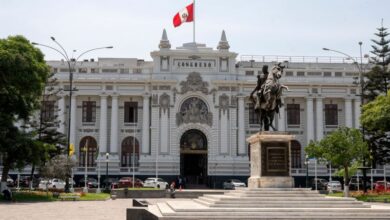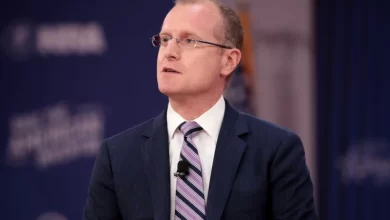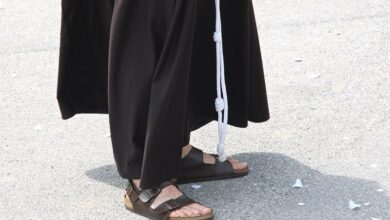North Carolina passes universal school choice
 null / Credit: Cherries/Shutterstock
null / Credit: Cherries/Shutterstock CNA Staff, Sep 25, 2023 / 17:40 pm (CNA).
North Carolina last week became the 10th U.S. state to enact “universal” school choice by removing barriers to a state program that provides tuition assistance for students attending private schools.
North Carolina’s General Assembly gave final approval Sept. 22 to a new state budget that aims to triple funding for the state’s Opportunity Scholarship program and end income restrictions for getting a private school voucher, the Charlotte News & Observer reported. Every North Carolina family will be able to apply for tuition assistance to attend a K-12 private school beginning in 2024-2025.
Since 2013, the state has offered the North Carolina Opportunity Scholarship Program, an initiative that previously provided funding of up to $ 5,928 per year for eligible children who choose to attend a participating nonpublic school, a figure that rose to $ 6,492 for the 2023-2024 school year.
That program provided assistance to nearly 25,600 students during the 2022-2023 school year, according to the program’s self-reported data. Of the 544 nonpublic schools participating in the program, the top 71 grantees by dollars given were all religious, according to the data.
Under the previous program guidelines — among other requirements — families of four making less than $ 111,000 would have met the eligibility criteria for the voucher. The new budget eliminates the income requirement and also eliminates a requirement related to prior enrollment in a public school. The budget also gives the state education superintendent authority to recommend a nationally-recognized standardized test for voucher recipients.
To pay for the program, the North Carolina budget calls for the Opportunity Scholarship program’s funding to nearly triple in the coming decade to more than half a billion dollars in the 2032-2033 fiscal year.
The individual voucher amount will vary by the family’s income level, the News & Observer reported. The state’s wealthiest families would get 45% of the amount the state spends per public school student, while the lowest-income families would get the full $ 6,492.
Jennifer Feldhaus, principal of Infant of Prague Catholic School in Jacksonville, North Carolina, told CNA late last year her school has benefited greatly from the Opportunity Scholarship program and estimated that approximately 42% of the school’s students were making use of the scholarship at that time.
“It’s been a tremendous program for Catholic schools because what was considered before unreachable, whether on income or location, is now an option for families,” she told CNA at the time.
‘It’s justice’
Early 2023 data from the National Catholic Educational Association (NCEA) showed that nationwide, 10.5% of Catholic school students use a parental choice program and 27.6% of Catholic schools enrolled students using parental choice programs. In some states, such as Arizona and Indiana, nearly all of the state’s Catholic schools take part in school choice programs.
The NCEA works with the U.S. bishops and other groups to support school choice, the group’s president and CEO Lincoln Snyder told CNA last spring.
“The Church believes very strongly that parents should have the ability to select the best education for their child as their primary educators. Obviously, choice programs are starting to make a huge difference for Catholic schools in enrollment,” Snyder said.
“[W]ithout these programs, it would be a far greater challenge for our communities to make Catholic education affordable. So we strongly advocate for seeing a growth in choice programs as a Church, no doubt, but it’s not our only strategy. We still also look to communities and philanthropists to help make schools affordable for families as well.”
Seven states “went universal” with their school choice programs during 2023 alone, according to the advocacy group EdChoice. Nearly 1 in 5 students now lives in a state with universal or near-universal school choice, the group says.
Sister Dale McDonald, PBVM, NCEA’s vice president of public policy, told CNA on Monday that she hopes North Carolina schools will encourage parents to apply for the voucher. Public dollars are generated by everyone, including parents and teachers at private schools, and private school students are “entitled a share,” she said.
“It’s fair, it’s justice, to give our kids a share of the money that their parents’ taxes generate,” she said, noting that in North Carolina, the state has only about 18,000 Catholic school students, a relatively small portion of the overall student population.
Universal school choice has, for the most part, only gained traction in Republican-led states. In North Carolina, Democratic Gov. Roy Cooper allowed the budget to become law without his signature, despite decrying it as “a bad budget that seriously shortchanges our [public] schools.”
McDonald said making school choice a “bipartisan issue” is “the big challenge right now.”
“Supporting kids should not be political,” she commented, saying school choice programs are about “respecting the needs of kids, not systems.”
What should Catholics think about school choice?
The Catechism of the Catholic Church affirms that parents have “the first responsibility for the education of their children” (No. 2223). Mothers and fathers, the Catechism says, retain the right to both teach their children the morals imparted by the Church and “to choose a school for them which corresponds to their own convictions” (No. 2229).
Polling by CNA’s parent organization, EWTN, released late last year found that U.S. Catholic parents broadly back initiatives to support school choice, with two-thirds saying they support a policy that allows students to make use of public education funds for the schools or services that best fit their needs.






